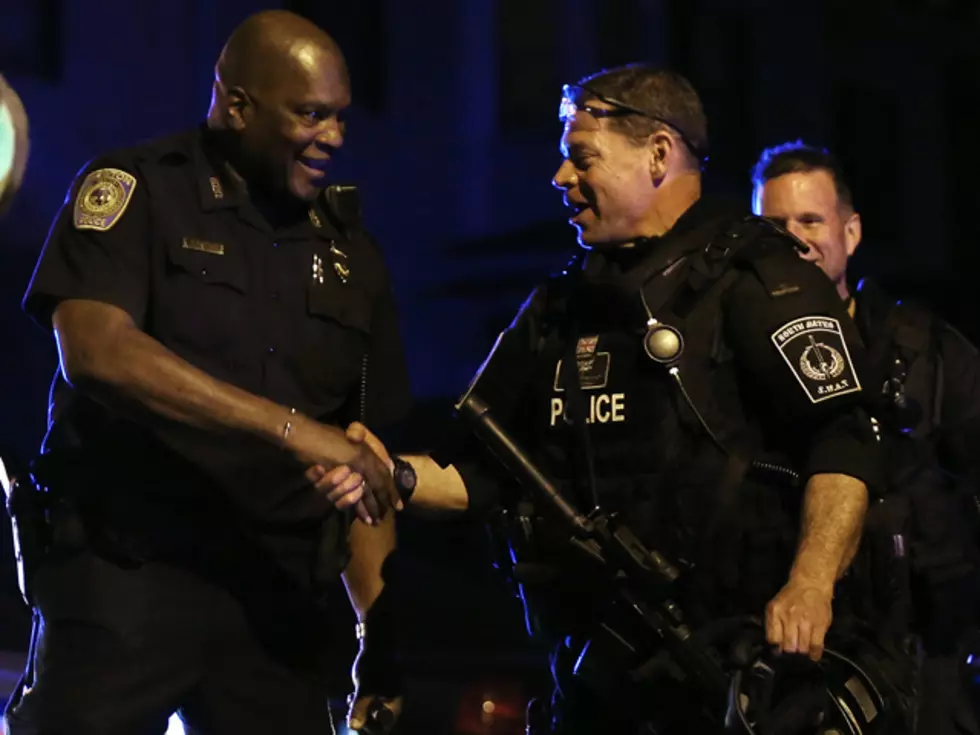
How to Talk to Kids in Wake of Boston Marathon Tragedy
As a parent, the hardest part of coping with any tragedy—be it a national or personal one—is finding the words to explain the unexplainable to your children, society's most innocent members.
Following the Boston Marathon bombing, children across the country were greeted home with somber faces and hugs that ran a little longer and tighter than usual. And while every parent wished they could promise their child to always keep them safe, the best that can be offered is to always do everything you can to make them feel as safe as possible.
The words of Fred Rogers, whose familiar face and soft voice took us to the Neighborhood of Make Believe during our own childhoods, re-surged on the Internet following the tragedy:
"When I was a boy and I would see scary things in the news, my mother would say to me, 'Look for the helpers. You will always find people who are helping.' To this day, especially in times of 'disaster,' I remember my mother's words, and I am always comforted by realizing that there are still so many helpers -- so many caring people in this world."
In another clip, Rogers says, "When children bring up something frightening. It's helpful right away what they know about it. We often find that their fantasies are very different from the actual truth. What children probably need to hear most from us adults is that they can talk with us about anything and that we will do all we can to keep them safe in any scary time."
Mr. Rogers' advice is right on par with what the National Association of School Psychologists recommends for talking to children about tragedies:
- Reassure children they are safe
- Make time to talk – the association recommends giving brief, simple information to early elementary school children; that upper elementary and early middle school children may need help separating reality from fantasy and to discuss efforts of school and community leaders to keep them safe; upper middle school and high school students may have suggestions on how to make schools safer and that parents should emphasize the role students play by following school safety guidelines.
- Review safety procedures
- Observe child’s emotional state
- Limit child’s viewing of news coverage
- Maintain normal routine
The association also says parents should tell children that senseless violence is hard for everyone to understand and that sometimes people do bad things to other people.
Read Rogers' Helping Children Deal with Tragic Events in the News from The Mister Rogers Parenting Book:
More From Mix 93.1




![Boston Holds Ceremony to Commemorate One Year After Marathon Bombings [PHOTOS]](http://townsquare.media/site/757/files/2014/04/484921077_10.jpg?w=980&q=75)



![Three Dead, 140-Plus Injured in Explosions at Boston Marathon Finish Line [UPDATED]](http://townsquare.media/site/156/files/2013/04/cbs-screenshot.png?w=980&q=75)
